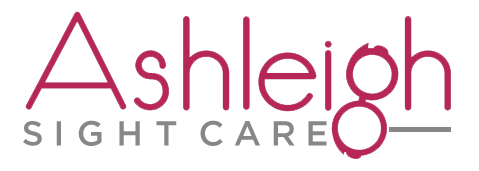Cataracts – Eye health professionals raise alarm over reports of growing number of patients denied cataract surgery

The Royal College of Ophthalmologists has expressed its concern over reports that patients in more than half of PCTs in England are being denied cataract surgery unless their ability to read the optometrists’ test chart (visual acuity) falls below a certain level – by which time they might not be able to lead their normal lives. In addition, there are reports that patients with cataracts in both eyes are being told their PCT will only treat one, despite substantial evidence in favour of treating both(1). Therefore, in conjunction with the College of Optometrists and Optical Confederation, Royal College President, Professor Harminder Dua considers it a matter of urgency to issue the following statement:
We strongly advise that it is clinically unsound to determine access to cataract surgery on the basis of visual acuity alone. Patients should be offered treatment for cataract if:
cataract is adversely affecting their daily living
they fully understand the risks and benefits of surgery; and,
they want to have, and are fit enough, for surgery.
We urge commissioners, clinicians and patient groups to work together to implement this advice as a matter of urgency.
Context for the advice
The bodies issuing this statement support the Department of Health’s strong stance against rationing access to cataract surgery through blanket visual acuity criteria, which ignore patients’ individual circumstances, such as the impact on their ability to work, drive or look after themselves.
Despite the commitment by Secretary of State for Health, Rt Hon Andrew Lansley MP to ban “caps on operations that do not take account of the healthcare needs of individual patients” by March 2012(2), new evidence shows that many commissioners are still imposing unfair restrictions on cataract surgery(3),(4). This is not clinically justified. Visual acuity is just one symptom of cataract. Measuring visual acuity is only part of an assessment of visual performance and does not take into account other elements that impact on the quality of life of patients. Patients with cataract can experience other serious symptoms, such as double vision or disabling glare from lights, even though their visual acuity is relatively unaffected. These symptoms have a serious impact on patients’ quality of life and they need access to treatment.
Second eye surgery
We are also concerned by reports that patients with cataracts in both eyes are being told their PCT will treat only one, despite substantial evidence in favour of treating both. Unless both eyes are treated, patients lose their ability to judge distances so it is more likely they will suffer accidents. Health Minister Simon Burns MP has rightly branded such blanket restrictions that ignore clinical judgements as “unacceptable”(5).
We understand the financial pressures the NHS faces but cataract surgery is a highly cost effective treatment that improves sight loss and preserves patients’ ability to live independent lives. Using visual acuity thresholds to impose limits on cataract surgery is economically counterproductive when it leads to higher health and social care costs because patients’ vision deteriorates. For example, a driver with a cataract that makes them very sensitive to glare might have to stop working before they reach the visual acuity threshold. An older person with reduced vision from cataract is more likely to fall and cataract surgery can reduce falls(6).
NHS best practice tariff
Best practice tariffs are one way for the NHS to improve quality, by reducing unexplained variation and making best practice universal. Our advice, including allowing for second eye surgery, is consistent with the NHS best practice tariff for cataract surgery(7).
Access to cataract surgery and patient-centred care
The “no decision about me without me” principle means patients should have the opportunity to discuss the pros and cons of surgery with a health professional. Visual acuity thresholds prevent many patients who could benefit from treatment reaching a shared decision about their care.
Further information and contacts
NHS Choice has helpful information on cataract surgery: http://www.nhs.uk/conditions/Cataract-surgery/Pages/Introduction.aspx
NHS Direct has produced a decision aid to help patients decide if they want to proceed with cataract surgery, which is available from their website: https://www.nhsdirect.nhs.uk/DecisionAids/PDAs/PDA_Cataracts.aspx
A Cochrane review into further evidence for second eye cataract surgery is underway and should report by the end of 2012.
Please contact:
Royal College of Ophthalmologists
Amanda Hayhurst, Tel: 07720 205581
amanda@amandahayhurst.com; www.rcophth.ac.uk
College of Optometrists
Natalie Andrews, Tel: 0207 478 7841
collegeofoptometrists@grayling.com; www.college-optometrists.org
Optical Confederation
Jenny Gowen, Mobile: 07595 653718
jennygowen@aop.org.uk
LOCSU
Jenny Manchester, Mobile: 07703 677697
jennymanchester@locsu.co.uk
References:
(1) Sach TH et al. Second-eye cataract surgery in elderly women: a cost-utility analysis conducted alongside a randomized controlled trial. Eye (Lond). 2010 Feb;24(2):276-83. Epub 2009 May 15.
Datta S et al. The importance of acuity, stereopsis, and contrast sensitivity for health-related quality of life in elderly women with cataracts. Invest Ophthalmol Vis Sci. 2008 Jan;49(1):1-6. Foss AJ et al. Falls and health status in elderly women following second eye cataract surgery: a randomised controlled trial. Age Ageing. 2006 Jan;35(1):66-71.
Sach TH et al. Falls and health status in elderly women following first eye cataract surgery: an economic evaluation conducted alongside a randomised controlled trial.
Br J Ophthalmol. 2007 Dec;91(12):1675-9. Epub 2007 Jun 21.
Desai P. Cataract surgery: one or both eyes? BJO Online First, published on June 13, 2012 as 10.1136/bjophthalmol-2012-301733.
(2) Andrew Lansley takes firm action to protect patient choice, Nov 14 2011. Available from http://mediacentre.dh.gov.uk/2011/11/14/andrew-lansley-takes-firm-action-to-protect-patient-choice/
(3) RNIB. A year on and restrictions on cataract surgery still leaving thousands at risk of sight loss. Available from http://www.rnib.org.uk/aboutus/mediacentre/mediareleases/mediareleases2012/Pages/pressrelease24may2012.aspx
(4) GP. Exclusive: 90% of PCTs are now rationing care, available from http://www.gponline.com/channel/news/article/1136671/exclusive-90-pcts-rationing-care/
(5) Mr Simon Burns MP. Simon Burns: PCT rationing is ‘unacceptable’ – 19 June 2012, available from http://www.simonburnsmp.com/index.php?option=com_content&view=article&id=400:simon-burns-pct-rationing-is-unacceptable-19-june-2012&catid=34:latest-press-releases&Itemid=53
(6) The College of Optometrists and the British Geriatric Society. The importance of vision in preventing falls, available from http://snipurl.com/244ko2a. 2011
(7) DH. Confirmation of Payment by Results (PbR) arrangements for 2011-12.
ENDS

